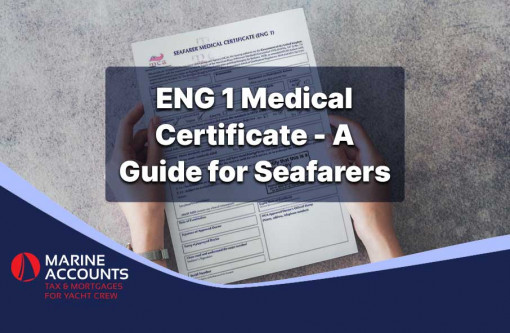The yachting industry is undeniably an enticing field to work in, although it’s not suited to absolutely everyone.
Working on board a yacht or a superyacht has numerous appealing features, including adventure, travel, and strong earning potential — along with certain tax advantages for seafarers.
If you’re keen to make your way into yachting, this article outlines the essential steps to help you secure your dream role at sea.
Chapters
- Research Life Aboard Yachts
- Learn About Job Roles
- Gain Necessary Qualifications
- Update Your CV
- Prepare for Interviews
- Register with Yachting Agencies
- Attend Job Fairs
- Go Dockwalking
- Find Daywork
- Be Willing to Adapt & Learn
- Conclusion
- Contact Us
Research Life Aboard Yachts
Before starting your yachting career, research what life at sea is really like. While the lifestyle can appear glamorous, it also demands long hours, physical endurance, and a positive attitude under pressure.
Privacy can be limited, as you’ll often share living quarters with other crew members. You’ll also spend long periods away from home, friends, and family.
Understanding the realities of the job will help ensure that this is the right career path for you.
Learn About Job Roles
“Yacht crew” covers a variety of roles — from hospitality-based positions such as steward or stewardess, to technical and maintenance roles like engineer or deckhand.
Most people begin as a steward/stewardess or deckhand, gaining hands-on experience before progressing to more senior positions over time.
Gain Necessary Qualifications

Image credit:
Pexels
To work legally and safely aboard yachts, you’ll need to complete a few key certifications:
- STCW Basic Safety Training: This mandatory course covers firefighting, sea survival, first aid, and personal safety at sea.
- ENG1 Medical Certificate: Confirms that you are fit and healthy enough to work at sea.
Additional qualifications, such as food service, hospitality, diving, or language courses, can improve your employability. They demonstrate enthusiasm, versatility, and a commitment to learning.
Update Your CV
Your CV acts as your personal marketing tool. Keep it professional, concise, and free of errors. Include a clear photo, relevant qualifications, references, and hobbies that complement the yachting lifestyle — such as diving, water sports, or hospitality experience.
Make sure to keep it updated as you gain more certifications or experience.
Prepare for Interviews
Once your CV is circulating, be ready for interviews. Here are some tips to make a great impression:
- Bring copies of your documents and certificates.
- Be punctual, confident, and maintain good eye contact.
- Dress smartly and maintain a professional appearance.
- Show enthusiasm, knowledge of the role, and awareness of industry standards.
- Be ready to discuss your long-term goals within yachting.
Register with Yachting Agencies
Once your documents are ready, register with reputable recruitment agencies and online platforms specialising in yachting careers.
Many captains and yacht owners search these databases when hiring new crew, so being visible across multiple platforms increases your chances of landing a position.
Attend Job Fairs
Recruitment events like the Cruise Job Fair in London provide great networking opportunities. You can meet recruiters face-to-face, hand out your CV, and receive valuable career advice.
Go Dockwalking
Dockwalking — walking around marinas and introducing yourself to yacht captains — remains one of the most effective ways to find work. Dress neatly, be polite, and bring several copies of your CV to hand out.
Find Daywork

Image credit:
Shutterstock
Daywork allows you to gain hands-on experience on different vessels, helping you learn the ropes while building references. Platforms like Dayworker make it easy to find short-term opportunities in your area.
Even short assignments can help build your skills, reputation, and network — all of which increase your chances of full-time employment.
Be Willing to Adapt & Learn
Yachting demands adaptability and teamwork. Listen carefully, take direction well, and maintain a proactive, positive attitude. Every experience — even small tasks — adds to your professional growth and helps you develop valuable problem-solving skills.
Conclusion
By following these steps, you’ll greatly improve your chances of breaking into the yachting industry. Focus first on gaining the right skills, experience, and reputation rather than immediate pay. Daywork and entry-level roles will open the door to long-term opportunities at sea.
Good luck on your journey — and enjoy the adventure!
Contact Us
If you have questions about starting a yachting career, we want to hear from you.
Simply get in touch with us today or share your thoughts in the comments section below.
Disclaimer: Any advice in this publication is not intended or written by Marine Accounts to be used by a client or entity for the purpose of (i) avoiding penalties that may be imposed on any taxpayer or (ii) promoting, marketing, or recommending to another party matters herein.








